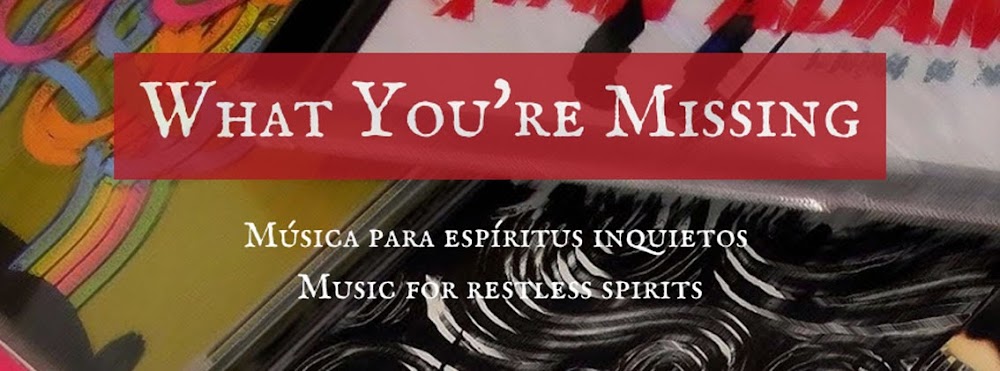XXXIX
"...everybody's wearing their hair the way you did fifteen years ago and it makes you wanna cry"
EIGHTIES COMING BACK
Claire's Birthday (aka Ruffus)
Claire's Birthday (aka Ruffus)
Future Is Now
Top Ten
2003
(ESPAÑOL ADELANTE) To put it bluntly, Eurovision is not and will never be a song contest. That is why great songs never make it to the finals or never get enough points. I am not going to state the obvious complaint about the voting system, nothing is going to change. The reason is simple, a lot of money is made through the televote. Having said so, I would like to present a great song that was on Eurovision not long ago, unlikely as it may seem.
Ruffus were candidates to the Estonian entry in 2003 out of a joke. Vaiko Eplik had been the leader of Estonian independent band Claire's Birthday since 1998 and he had released three albums with it before they decided to become the first indie project ever to make it to the finals of the popular festival. They changed their name to Ruffus, as if they wished not to mix up their serious careers with the camp spirit of Eurovision, and wrote one of the most addictive pop tunes of the last decade. Of course, the song reached the (un)expected 21st position and received no further attention from the music press.
Of course, the band's music is much more than this song. The album where it features has some other great songs that really make you wonder how much good music coming from small countries in Europe we're missing. After the band split up, Vaiko started a solo career and currently his project is called Vaiko Eplik ja Eliit and it is really worth a listening, especially if one likes to listen to music in exotic languages, which Sigur Rós have proved not be necessarily a drawback.
I must confess that since 2003 I only watch the contest hoping there's a slight probability of discovering such unpretencious artists that makes the 4-hour-TV time worth watching. It doesn't always happen. Not this year.
P.S.: Some Estonian readers have pointed out that there was indeed another estonian entry this year that really deserves attention. After listening to it I must say they're right. Here's Malcolm Lincoln's Siren:
Directamente, Eurovision no es ni será nunca un concurso de canciones. Por eso hay grandes canciones que no llegan siquiera a la final o consiguen muy pocos puntos. No me voy a meter con la conocida y obvia queja del sistema de votación, porque eso nunca va a cambiar. Por una razón: se saca mucho dinero del televoto. Y dicho esto, quisiera presenta una gran canción, por imposible que pueda parecer, que concursó en Eurovisión no hace mucho.
Ruffus fueron candidatos al festival por Estonia en el año 2003 debido a una broma, o apuesta o, llámenle como quieran. Vaiko Eplik llevaba siendo el líder de la banda de pop estonia Claire's Birthday desde 1998 y ya llevaban tres álbumes antes de presentarse al festival para convertirse en la primera banda indie en aparecer en el mismo. Se cambiaron el nombre a Ruffus, quién sabe si para no mezclar sus serias carreras en la música con el espíritu "camp" del concurso y compusieron una de las melodías pop más adictivas de la última década. Por supuesto, la canción alcanzó la (in)esperada posición vigésimoprimera y ya no volvió a gozar de más atención por parte de la prensa musical.
Ni que decir tiene que la música de la banda es mucho más que Eighties Coming Back. El álbum del cual está sacada continene unas cuantas canciones que te hacen preguntarte cuánta buena música de países pequeños en Europa nos estamos perdiendo. Después de separarse la banda, Vaiko comenzó una carrera en solitario y su proyecto presente se llama Vaiko Eplik ja Eliit, el cual merece una atenta escucha, sobre todo si somos aficionados a la música cantada en idiomas exóticos. Sigur Rós ha demostrado que eso no tiene por qué ser un incoveniente.
Debo confesar que, desde 2003 sólo veo el festival de Eurovisión con la remota esperanza de descubrir talentos como este que, sin pretensiones, hagan que valga la pena pasarse cuatro horas delante de la televisión. No pasa siempre. Este año, no.
PD: Muchos lectores estonios han señalado el candidato de este año por este país como un artista merecedor de nuestra atención. Después de escucharlo, debo admitir que tienen razón. Aquí les dejo con Siren de Malcolm Lincoln.
PD: Muchos lectores estonios han señalado el candidato de este año por este país como un artista merecedor de nuestra atención. Después de escucharlo, debo admitir que tienen razón. Aquí les dejo con Siren de Malcolm Lincoln.
Enlaces/Links:
Vajko Eplik ja Eliit at Myspace
Ruffus at Wikipedia




+18.30.13.png)





